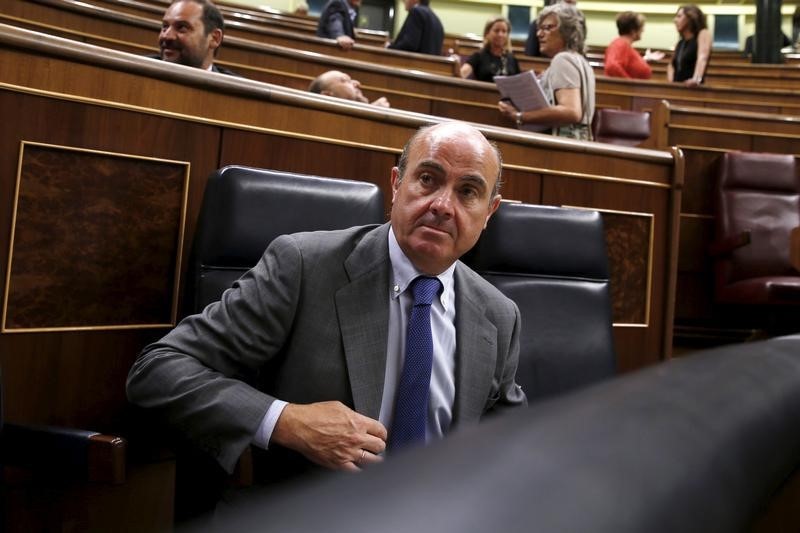(Bloomberg) -- Terms of Trade is a daily newsletter that untangles a world embroiled in trade wars. Sign up here.
European Central Bank Vice President Luis de Guindos came to the defense of the institution’s new tiering system, saying that it was necessary to ensure that the accommodative monetary policy stance continues.
The central bank is introducing a two-tier system that exempts some banks’ deposits from negative rates. While the ECB estimates banks will save about 4 billion euros ($4.4 billion) a year, some analysts have pointed out that it is also creating uncertainty in the short-term market rates.
Guindos appeared to address some of the criticism Tuesday, saying that at this stage the ECB sees “very little evidence” of tiering putting upward pressure on money market rates.
Speaking in Frankfurt, he said around 1 trillion euros of excess liquidity will continue to be affected by negative rates, sufficiently large to ensure that money-market rates remain stick close to the ECB’s deposit rate.
He added that the exemption threshold of six times minimum reserve requirements was chosen to maintain a balance.
“It offsets the direct cost of negative interest rates on banks’ profitability, thereby helping to sustain the pass-through of low policy rates to bank lending,” Guindos said. “It also preserves the positive contribution of negative rates to the accommodative stance of monetary policy and the continued sustained convergence of inflation to our aim.”
He said that the ECB will continue to actively monitor conditions in the money market.
